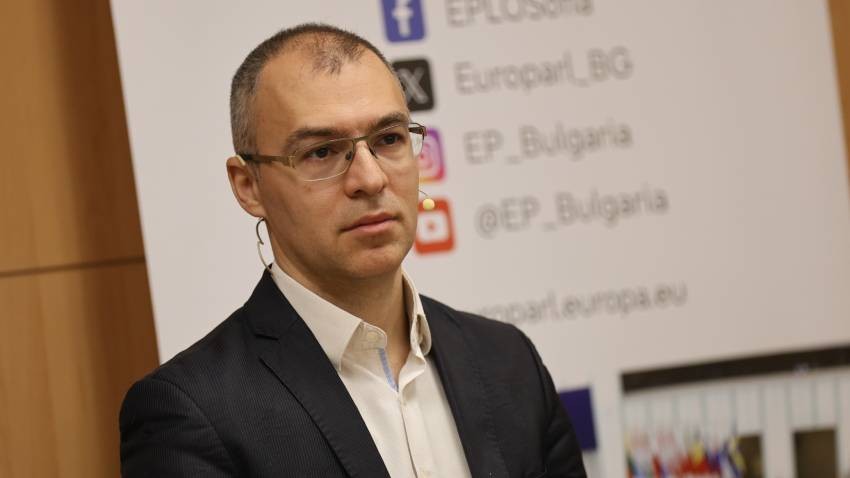“Civil servant is not a dirty word” – with these words, civil servants organized a protest in front of the Council of Ministers building at the beginning of April. The reason was the fact that salaries in public administration had dramatically fallen behind the average monthly salary in the country, with a large portion of the people employed there earning salaries gravitating around the minimum salary (900 Leva per month, or EUR 460). That is why the Council of Ministers raised the salaries of almost 1,000 people by 21% as of the beginning of 2024. Apparently, there are people occupying responsible posts, with long years of experience and enviable professional expertise working for pay close to the minimum salary, including the inspectors from the Bulgarian Food Safety Agency, the Hail Suppression Agency, the labour inspectors and the inspectors from the Agriculture and Aquaculture sector and many other employees whose job it is to monitor that the implementation of the legal provisions in the country. 
Even though they have a responsible job to do, the public often snub civil servants. Public administration is often perceived as “bloated” and inefficient. People from businesses often compare their own efficiency and workload with that of the people from public administration, saying that the work organization is obsolete compared to the way public administration functions in other countries. They want to see administrative services digitized so members of the people do not have to meet with the local administration in person. 
“That is in the interest of the administration itself because the more the focus there is on the experts, who really do matter, the higher their pay,” says Dobromir Ivanov, head of the Bulgarian Entrepreneurial Association, with 500 companies from 70 different industries as its members. “We haven’t yet taught AI to say “this is not an information desk” (as desk clerks so often say – editorial note), I am joking, of course. If we want the country to function smoothly we need institutions that function well. That is what makes the question of public administration so important. Several things should be considered here – firstly, that the money in our country is made mostly by 1 million 700,000 people, and they are the people employed in the private sector. And the money the state pays the public administration comes from what they have earned – through taxes and social security payments. Pensioners, young people, university students, children, the unemployed, the socially disadvantaged and a lot of other people live on the money made by private entrepreneurs. This makes the question of how to make Bulgaria a wealthier country so we can all have more money a crucial matter. Figuratively speaking, there are around half a million people from the administration relying on the state budget, and that is a lot.”
The people from the Entrepreneurial Association say the “battle” for higher pay in public administration is their battle too as there are important sectors – attracting investments, education etc. – where it is difficult to find qualified staff because salaries are so low. “To raise salaries, however, the country has to grow richer on the one hand, and on the other – more technologies have to find a place in the administration,” says Dobromir Ivanov and gives as an example departments with 60 staff even though only 7 of them do the actual work, the rest do things that can easily be done by a machine. 
“We all have an interest in having highly-paid, highly-educated and motivated people there, people who understand what it means to be a public servant,” Dobromir Ivanov goes on to say.
It often happens that whether a given reform is going to happen or not is in the hands of the administration, but to this aim the administration has to be “won over” so it will work in the same direction as businesses, Dobromir Ivanov believes.
“The truth is that there are people at the ministries who have been working there for 25-30 years, and they occupy key positions. Given that ministers are changed every 9 or even 3 months, the people working at the ministries have a key role to play. Because when a new minister comes along with their numerous new and bold ideas, the administration tells them he is the last in a long line coming for just a short spell and believing they are going to start the reform. So, change itself is in the hands of the people who have been working in public administration for more than 25 years. But we have to find a way to work with them, based on what unites us instead of looking for more reasons to divide the nation.”
Political will and leadership are crucial in this process. “When people see there are no priorities, everything is done with a short time horizon and it is not clear where we are heading, the administration gets empowered and can put a brake on many things in the development of the country,” says Dobromir Ivanov, head of the Bulgarian Entrepreneurial Association.
Translated and posted by Milena Daynova
Photos: BGNES, BTA
He does not accept the definition of "apostle" or "missionary", although for many he is exactly that - a messenger of God in the world, proclaiming His Word. He first became a priest in his native Vidin diocese, in Northwestern..
Over 80% of Bulgarians are expected to start using artificial intelligence in the next three years , across all age groups. Today, it is almost impossible to find a Bulgarian student who does not turn to ChatGPT when preparing homework. This..
Serbians around the world mark one year after Novi Sad tragedy On November 1, Serbians abroad will join the call of students in Serbia to mark the anniversary of the collapse of the canopy of the Novi Sad railway..
Over 80% of Bulgarians are expected to start using artificial intelligence in the next three years , across all age groups. Today, it is almost..
"We cannot escape from modern technologies, but we must think about how we can use artificial intelligence to improve the quality of..
Serbians around the world mark one year after Novi Sad tragedy On November 1, Serbians abroad will join the call of..

+359 2 9336 661
